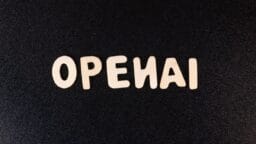New Education Curriculum Introduced by the Federal Government
The Federal Government has announced an expansive new educational framework for Junior and Senior Secondary Schools, prioritizing digital literacy, coding, robotics, and artificial intelligence as essential components of classroom instruction.
This curriculum is set to be implemented starting in September 2025.
The comprehensive subject outline was disclosed today by Dada Olusegun, Special Assistant to the President on Social Media, via a post on his X account.
“The new curriculum for Nigerian schools is set to commence in September 2025,” he stated.
Revealed by the government on Sunday, this novel framework signifies a monumental transition in Nigerian education, extending beyond conventional subjects to better equip students for a digital future.
At the Junior Secondary level, students will explore foundational programming languages such as Python and Scratch, engage in robotics, and develop internet research skills.
Conversely, Senior Secondary learners will delve into advanced topics including artificial intelligence, data science, cybersecurity, and digital entrepreneurship.

Junior Secondary (JSS 1–3)
- Mathematics & Measurement: Numbers, fractions, decimals, percentages, ratios, geometry, algebra, statistics, measurement.
- English Language: Essay writing, advanced grammar, comprehension, vocabulary, debates, speeches, drama.
- Integrated Science: Fundamentals of physics, chemistry, biology, ecology, earth science, and lab safety.
- Digital Literacy & Coding: Microsoft Office, internet research, Python, Scratch programming, introductory robotics.
- Social Studies: History, geography, civics, trade, monetary systems, and entrepreneurial fundamentals.
- Languages: Proficiency in mother tongue, with conversational abilities in French or Arabic.
- Creative Arts: Drawing, painting, crafts, theatre, film, music.
- Physical & Health Education: Sports, nutrition, reproductive health, first aid, drug awareness.
Senior Secondary (SS 1–3)
- Mathematics & Advanced Applications: Algebra, trigonometry, fundamentals of calculus, probability, statistics, financial mathematics, and applied mathematics.
- English & Communication: Academic writing, literary analysis, research methodologies, public speaking, journalism, fact-checking.
- Sciences: Physics (mechanics, waves, electricity, nuclear physics), chemistry (organic, inorganic, industrial, analytical), biology (genetics, biotechnology, ecology), and environmental science.
- Technology & Innovation: Programming (Python, JavaScript, HTML/CSS), data science fundamentals, artificial intelligence, robotics, digital entrepreneurship, cybersecurity.
- Social Sciences: Government and law, micro and macroeconomics, history, philosophy, ethics, entrepreneurship.
- Languages: Advanced mother tongue literature, with fluency options in French, Arabic, or Chinese.
- Creative Arts & Innovation: Fine arts, music, drama, media production.
- Physical & Health Education: Advanced sports, mental health, CPR, leadership training.
- Research & Project Work: Final-year projects, data analysis, presentations, and oral defense.
These reforms reflect the government’s commitment to modernizing education, equipping Nigerian students with essential skills in digital technology, innovation, and entrepreneurship—key areas deemed vital for global competitiveness in the 21st century.
Source link: Newsmakerslive.org.






